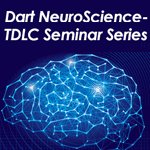Feb 22, 2017–Feb 22, 2017 from 3:00pm–4:00pm
Dart NeuroScience—TDLC Seminar Series

http://tdlc.ucsd.edu/research/DNS/speakers/Kalish.html Professor Chuck Kalish from the University of Wisconsin - Madison presents “What Kinds of Statistics Do Young Children Learn?” Young children are often characterized as inefficient learners. In the context of inductive inference and categorization this means they are less able to focus attention on relevant (diagnostic) information and ignore irrelevant information. They learn more slowly and make more errors. However, efficient learning comes at a cost: Learning just what is needed to solve a specific problem may leave one unprepared to solve related problems. I’ll discuss these tradeoffs in the context of discriminative and generative models. In a series of experiments, children and adults learn about objects instantiating multiple patterns of correlated attributes. Both young children and adults do adjust what they learn depending on task and feedback. While we find some evidence that young children spread their attention more broadly (learn more generative models), we also find evidence that they may be especially helped by narrow task focus. In trying to learn too much, young children may end up learning nothing. Across experiments I will consider what children learn independently of task-specific feedback (exploration), and where such feedback (instruction) might be especially important.
Date and Time
Feb 22, 2017–Feb 22, 2017
from 3:00pm–4:00pm
Location
Sanford Consortium, Duane J. Roth Auditorium - 2880 Torrey Pines Scenic Drive, La Jolla, CA 92037
Event Registration
Registration is not required for this event.
Event Fee
FREE
Contact
Keri O'Leary • kaoleary@ucsd.edu • 858-822-5805
Audience
Faculty, Staff, Students, The General Public
Event Host
Dart NeuroScience—TDLC